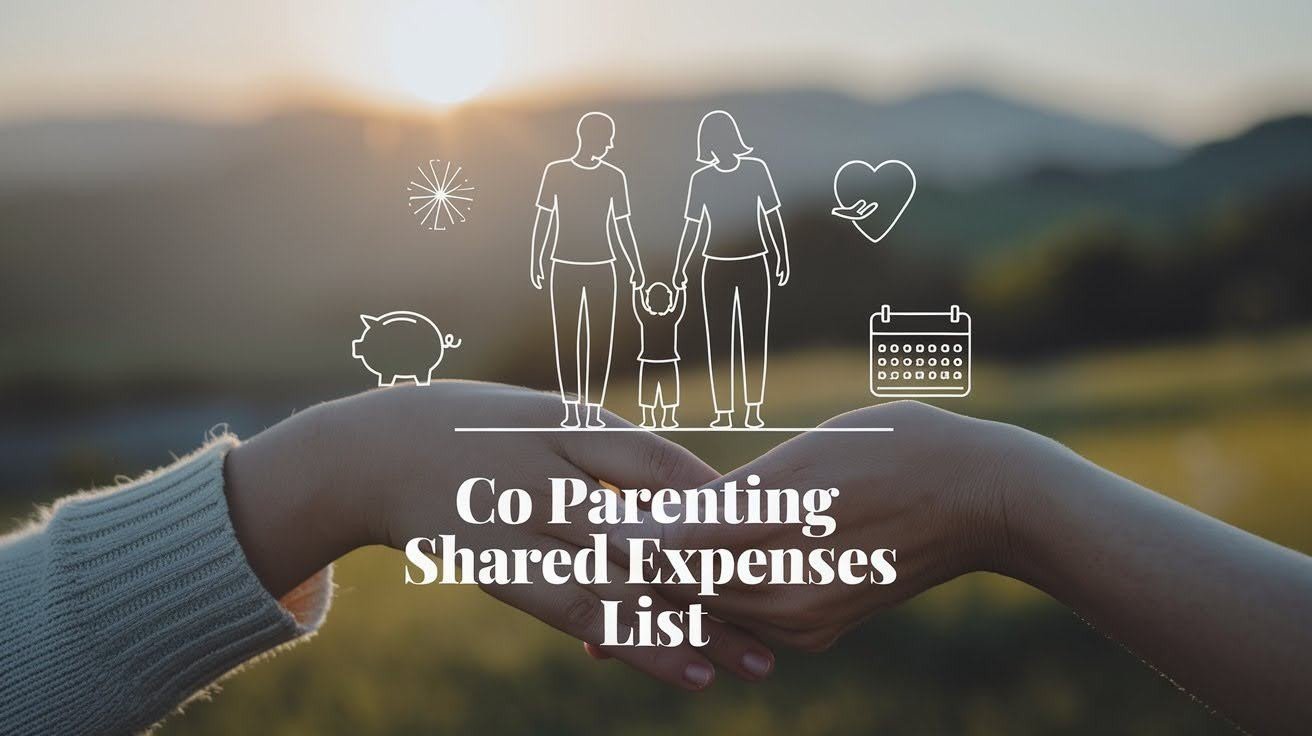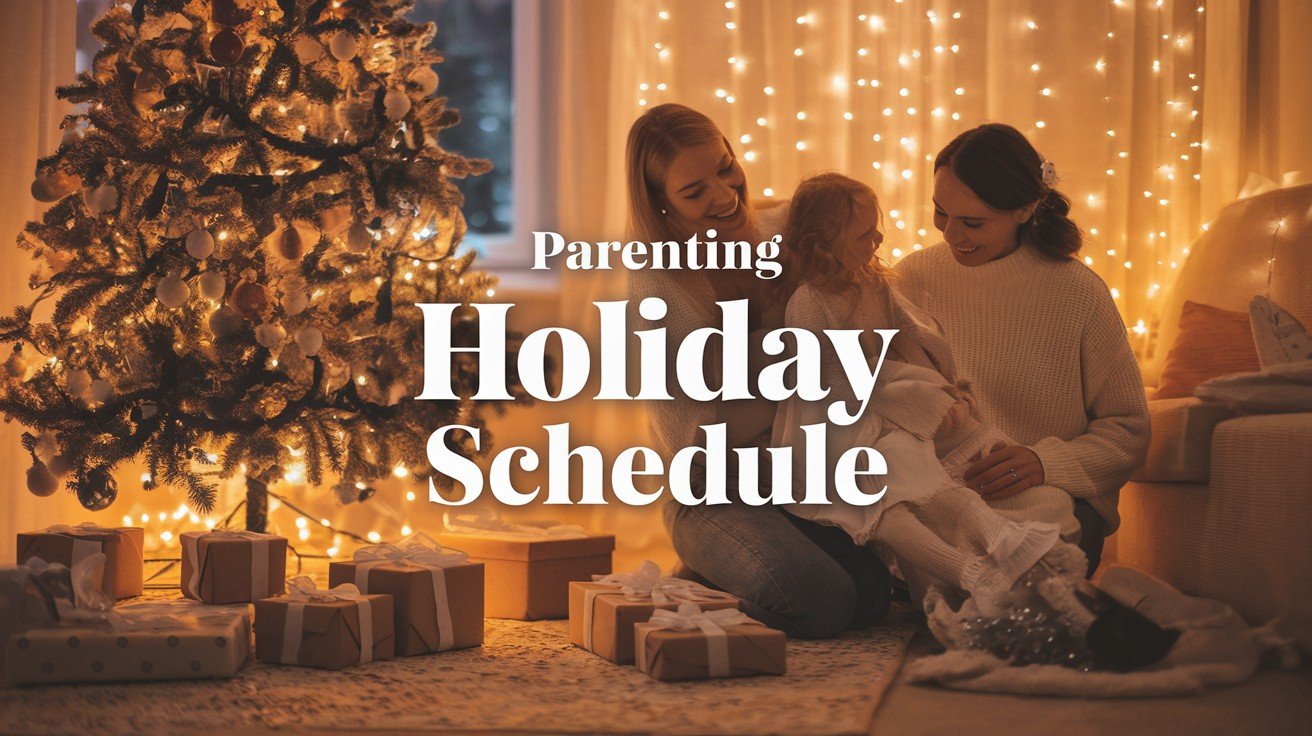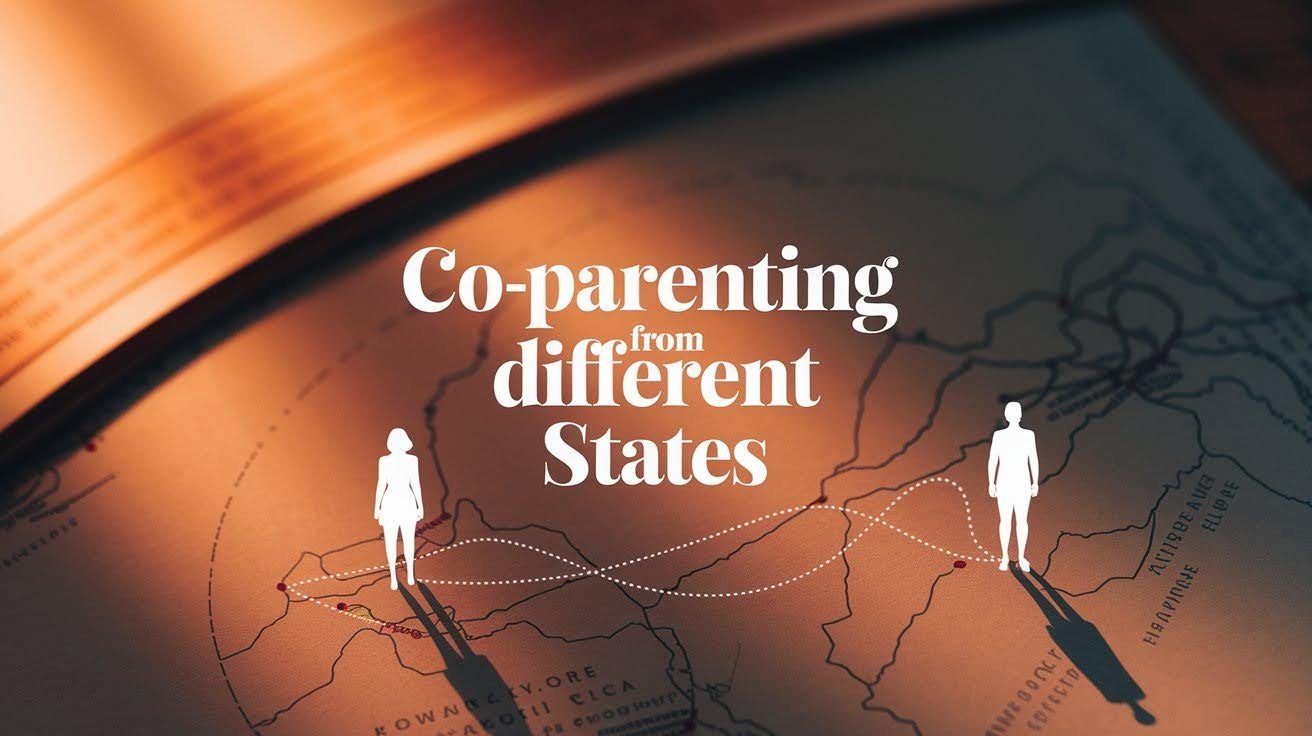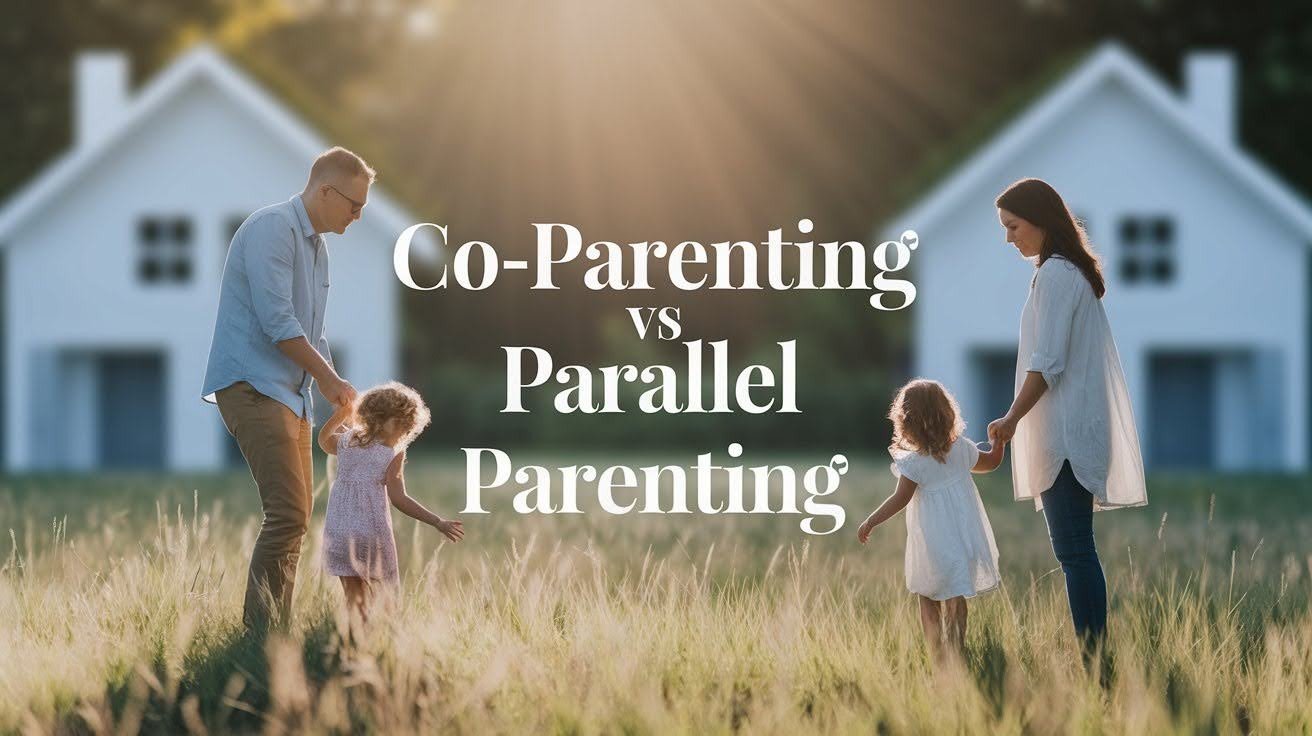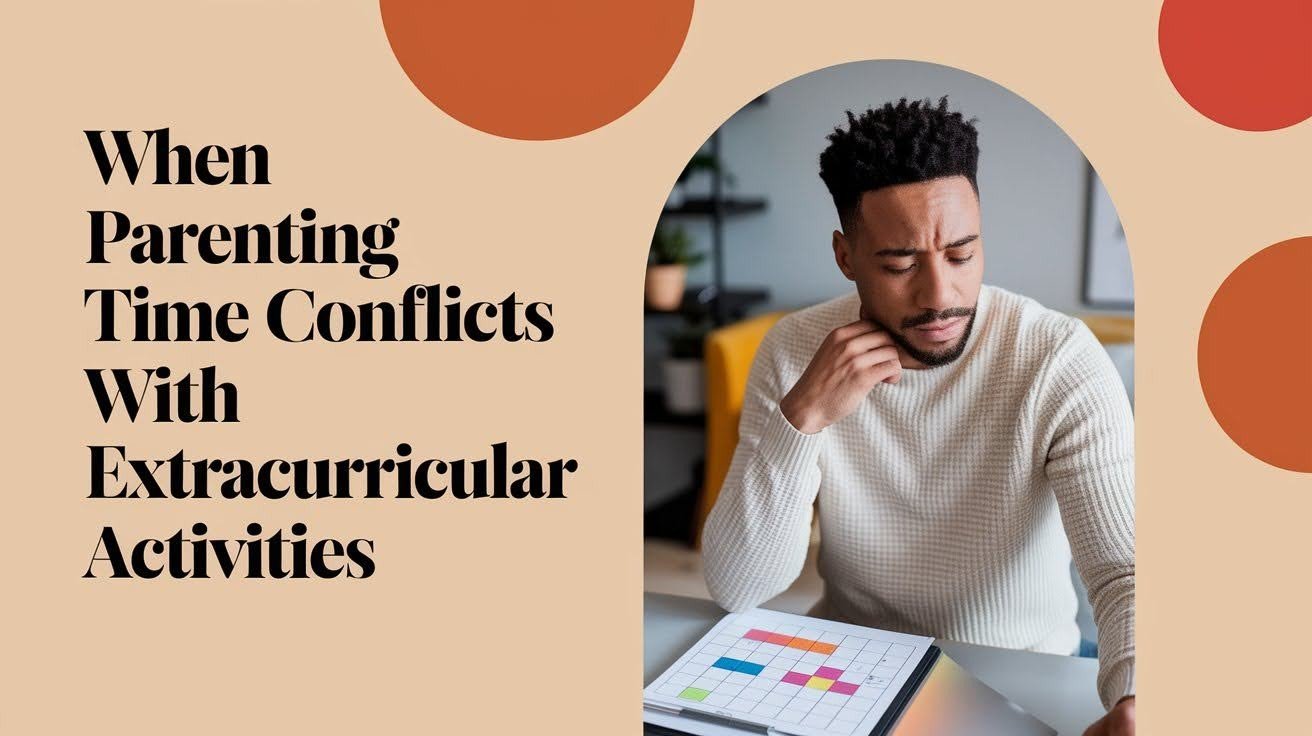Entering a new relationship, after a separation, can feel fragile and uncertain, like taking careful steps on thin ice. You want to find love again, but your children’s needs must come first. The key to success lies in setting clear co – co-parenting boundaries while in a new relationship.
Many single parents find it a struggle and a concern to balance their dating life with parenting. They often worry about how their decision could impact their children’s brains and hearts. When done right, healthy boundaries protect everyone involved.
This guide will show you how to create a stable environment for your family. You’ll learn to manage relationships with your new partner and co-parent while keeping your children’s best interests at heart.
The Challenge of Dating After Separation

Starting over in the dating world while raising children brings unique difficulties:
- Juggling time between parenting duties and building new romantic connections
- Managing your children’s emotions as they adjust to family changes
- Dealing with your ex-partner’s reactions to your new relationship
- Finding the right time to introduce children to a new partner
- Balancing your personal happiness with your role as a parent
- Handling conflicts between old family routines and new relationship demands
Essential Co-Parenting Boundaries for New Relationships
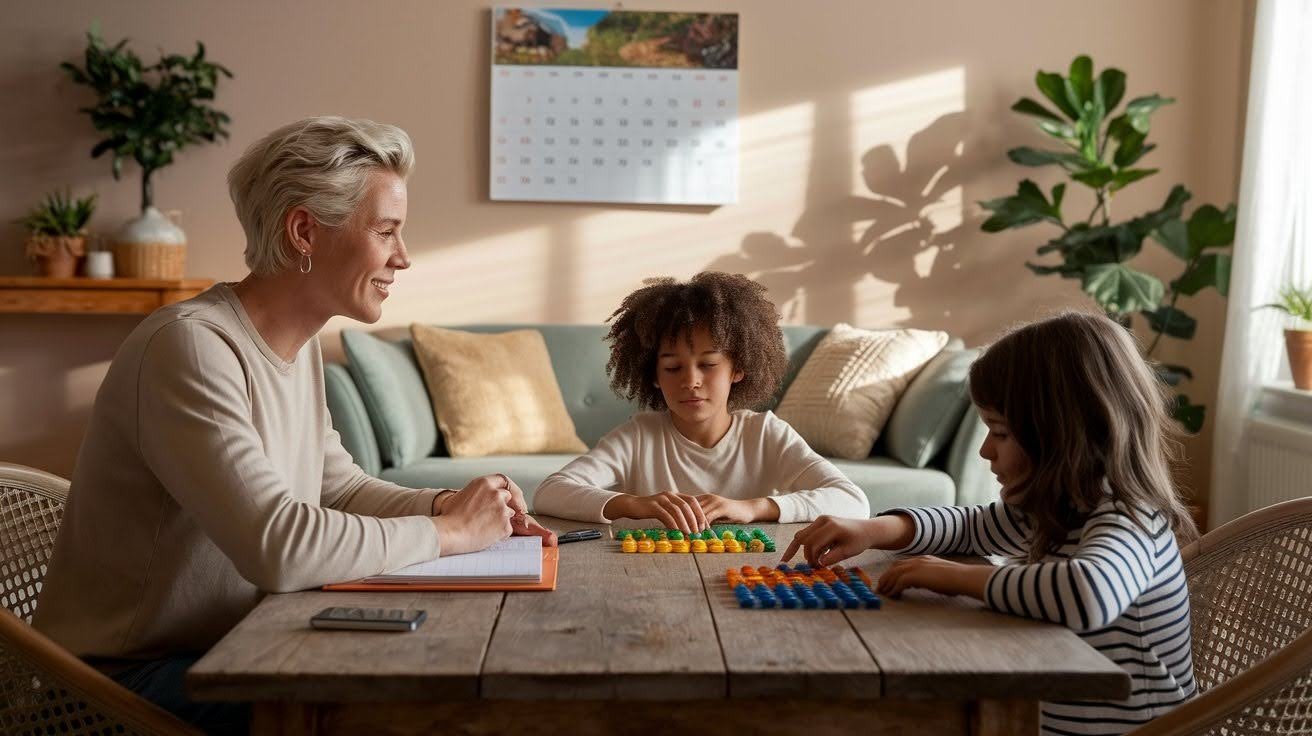
Successful co-parenting requires respect for existing agreements and careful planning when new people enter the family picture:
Follow Your Parenting Plan Religiously
Your parenting plan exists for good reasons. It gives your children stability and helps avoid conflicts with your ex-partner. When you start dating someone new, this plan becomes even more important.
Share your parenting schedule with your new partner from the start. Help them understand when you’re available and when your children need your full attention. This prevents misunderstandings later.
Never change your parenting time without talking to your co-parent first. Your new relationship should fit around your parenting duties, not the other way around. This shows both your children and your ex that your role as a parent comes first.
Respect Your Co-Parent and Existing Agreements
Your relationship with your ex-partner affects your children’s well-being. Even if things ended badly between you two, maintaining respect helps everyone move forward healthily.
Keep your new partner out of direct communication with your ex, especially in the beginning. Handle all co-parenting discussions yourself to avoid confusion or conflict. This protects the working relationship you’ve built with your co-parent.
Honor all agreements you made during your separation or divorce. Don’t ask your ex to change plans just because you want to spend time with your new partner. Consistency helps your children feel secure during this time of change.
Only Introduce Partners in Serious Relationships
Your children don’t need to meet every person you date. Wait until you’re sure this relationship has long-term potential before making introductions. This protects your children from getting attached to people who might not stay.
Consider waiting at least six months before introducing a new partner to your children. This gives you time to really know the person and see how they handle stress and conflict. It also shows your children that you take their feelings seriously.
Talk to your co-parent before making introductions. While they can’t control your choices, giving them a heads-up shows respect and helps them prepare to support your children through this change.
Allow Natural Relationship Development Between Child and Partner
Don’t force your children to like your new partner or call them by a parental name. Let relationships grow naturally over time. Some children warm up quickly, while others need more time to adjust.
Permit your children to have mixed feelings about your new partner. They might feel loyal to your ex or worry that loving someone new means being disloyal to their other parent. These feelings are normal and healthy.
Set up activities where your children and new partner can interact without pressure. Casual outings like going to the park or playing games at home work well. Avoid big events or overnight trips until everyone feels more comfortable together.
Plan Group Activities to Build Family Bonds
Create positive experiences that include both your children and your new partner. Fun activities help everyone get to know each other in a relaxed setting. This builds trust and shows your children that your partner cares about spending time with them.
Start with short activities and gradually increase the time you spend together as a group. A trip to the zoo might work better than a week-long vacation when you’re just starting. Pay attention to how your children respond and adjust your plans accordingly.
Include activities that your children already enjoy. If your child loves soccer, invite your partner to a game. If they enjoy cooking, spend an afternoon making cookies together. This helps your partner connect with your children’s interests and shows that you value what matters to them.
How to Establish Boundaries with Your New Partner?

Setting clear expectations with your new partner is essential to protect your co-parenting boundaries and make sure everyone knows their role in your family.
When dating someone as a parent, it’s important to have honest conversations from the start. Your partner needs to understand that being with you also means being part of your children’s lives and respecting your relationship with your co-parent.
Be upfront about your parenting responsibilities, your schedule, your children’s needs, and how co-parenting decisions are handled. This honesty helps them understand what they’re stepping into and prevents misunderstandings later. Remember, they are learning too. Be patient as they adjust, but always prioritize your children’s well-being, even if it sometimes disappoints your partner.
Setting Expectations Early
Have serious conversations about parenting before your relationship gets too serious. Talk about your children’s schedules, special needs, and behavioral challenges. Discuss how involved your new partner wants to be and what role they see themselves playing in your children’s lives.
Explain your co-parenting relationship honestly. If you and your ex work well together, share that. If there are ongoing conflicts, be upfront about those challenges, too. Your partner needs to understand the full picture to make informed decisions about their involvement.
Set clear limits about what your partner can and cannot do with your children. Can they help with homework? Should they attend school events? Are they allowed to discipline your children? These conversations prevent confusion and conflict down the road.
Discussing Parental Responsibilities Upfront
Be clear about which parenting duties you handle alone and where your partner might help. Some parents prefer to keep all major decisions to themselves and their co-parent. Others welcome input from a caring partner who spends time with their children.
Talk about emergencies and who has the authority to make decisions about your children’s safety and well-being. Your partner should know when they can act on their own and when they need to call you or your co-parent first.
Discuss how your partner should handle conflicts or behavioral issues with your children. Should they come to you immediately, or can they address minor problems themselves? Clear guidelines help everyone feel more confident in difficult situations.
Understanding Stepparent vs. Biological Parent Roles
Help your partner understand that their role is different from yours or your co-parent’s role. They can be a caring, supportive adult in your children’s lives without trying to replace anyone. This takes pressure off everyone and allows relationships to develop naturally.
Explain that your children already have two parents who make major decisions about their lives. Your partner’s job is to support and care for your children, not to parent them in the traditional sense. This doesn’t make their role less important – just different.
Give your partner permission to develop their own relationship with your children. They don’t need to copy your parenting style or try to be exactly like your co-parent. Children benefit from having different caring adults in their lives with different strengths and perspectives.
How to Manage Co-Parent Relationships?

Maintaining a good working relationship with your ex while dating someone new requires careful communication and respect for everyone involved:
Managing relationships between your co-parent and new partner takes planning and sensitivity. Your ex-partner might feel threatened, worried, or curious about the person spending time with their children. These feelings are natural, even if your divorce was amicable. Clear communication and respect for everyone’s concerns help prevent conflicts that could hurt your children.
Start by having honest conversations with your co-parent about your new relationship. Don’t wait until they hear about it from someone else or see it on social media. Give them time to process this information and ask questions. This approach shows respect for their role as your children’s other parent.
Remember that your co-parent’s concerns about your new partner often come from love for your children, not jealousy about your relationship. Listen to their worries and address them thoughtfully. This doesn’t mean giving them control over your dating life, but it does mean considering their perspective as your children’s other parent.
Communicating About New Partners
Start the conversation with your co-parent when your relationship becomes serious. You don’t need to share every detail of your dating life, but they should know when someone new will be spending regular time around your children.
Focus on practical matters during these discussions. Talk about how your new partner might affect schedules, pickup times, or childcare arrangements. Avoid sharing personal details about your relationship that don’t directly affect your children.
Be prepared to answer questions about your partner’s background, especially if your co-parent has safety concerns. Share information that helps them feel comfortable with this person being around your children. This might include your partner’s job, living situation, or how you met.
Having Productive Conversations About Partner Involvement
Discuss specific situations where your partner might interact with your children. Can they pick up the kids from school? Should they attend parent-teacher conferences? Are they allowed to take your children to medical appointments? Clear agreements prevent confusion and conflict.
Talk about how your partner should communicate with your co-parent if situations arise when you’re not available. Should they call or text directly, or should all communication go through you? Having a plan reduces stress for everyone when unexpected situations happen.
Set up regular check-ins with your co-parent to discuss how things are going with your new partner’s involvement. This gives both of you a chance to address concerns before they become bigger problems. It also shows your commitment to making co-parenting work for everyone.
Respecting Existing Co-Parent Dynamics
Don’t let your new partner interfere with decisions that you and your co-parent need to make together. Keep them informed about important issues, but make it clear that parenting decisions involve only you and your ex-partner.
Avoid asking your new partner to communicate with your co-parent about sensitive topics. Handle difficult conversations yourself to protect the working relationship you’ve built with your children’s other parent.
Support your co-parent’s relationship with your children, even if you’re excited about your new partner’s connection with them. Your children need both parents to feel secure and loved. Don’t let your new relationship create competition between the adults in your children’s lives.
How to Implement Child-Centered Boundaries?

Putting your children’s needs first when setting co-parenting boundaries while in a new relationship protects their emotional health and helps create positive family dynamics:
- Wait for the right timing before introducing your children to new partners: rushing can cause emotional harm
- Let your children set the pace for building relationships with your new partner: forced connections often backfire
- Keep your children’s routines as stable as possible when your new partner spends time with your family
- Give your children private time with you without your new partner present: they need to feel secure in your relationship
- Create safe spaces for your children to express their feelings about your new relationship without judgment
Protecting Children’s Emotional Well-being
Choose the right time to introduce your children to your new partner. Consider their ages, personalities, and how well they’re adjusting to the divorce or separation. Some children need more time than others to feel ready for this step.
Watch for signs that your children are struggling with your new relationship. Changes in behavior, grades, or sleep patterns might mean they need more support or time to adjust. Don’t ignore these warning signs in your excitement about your new partner.
Give your children permission to have complicated feelings about your new relationship. They might feel happy, sad, angry, or confused – sometimes all at once. Let them know that all of these feelings are okay and that you’re there to support them through this change.
Avoiding Forced Relationships
Never make your children call your new partner “mom” or “dad” unless they choose to do so themselves. These titles have special meaning, and children should decide when and if they want to use them with someone new.
Don’t expect instant family bonding or require your children to participate in activities with your new partner. Some children warm up quickly, while others need months or even years to feel comfortable. Respect their timeline and don’t take slow progress personally.
Avoid making your children feel guilty if they don’t immediately love your new partner. Comments like “I wish you’d give them a chance” or “they’re trying so hard to be nice to you” put unfair pressure on children who are already dealing with big changes.
Supporting Children’s Natural Affection
When your children do start to care about your new partner, celebrate this progress without making it a big deal. Quiet support works better than throwing a party every time your child has a positive interaction with your new partner.
Don’t worry if your children’s affection for your new partner threatens your co-parenting. Children have room in their hearts for many caring adults. Loving someone new doesn’t mean they love their other parent less.
Help your children understand that caring about your new partner is okay and doesn’t betray anyone. Some children worry that their other parent will be hurt or angry if they like your new partner. Reassure them that having many people who love them is a good thing.
Creating Positive Blended Family Dynamics
Think of your new partner as a bonus adult in your children’s lives rather than a replacement for anyone. This mindset helps everyone feel more comfortable and reduces competition between the adults who care about your children.
Encourage your new partner to find their own special role in your children’s lives. Maybe they become the person who helps with science projects or teaches guitar lessons. Having their own niche helps them bond with your children without stepping on anyone else’s toes.
Build traditions that include your whole blended family while respecting traditions your children have with their other parent. You might start having pancake breakfasts on Sundays while still supporting your children’s Saturday movie nights with their other parent. Both traditions can exist peacefully.
Conclusion
Creating healthy co-parenting boundaries in a new relationship takes patience, clear communication, and putting your children’s needs first. Being honest with all adults involved helps set realistic expectations and defines everyone’s role.
Regular communication is key to preventing small issues from turning into bigger conflicts. Blending families is a gradual process some days will be smooth, others challenging, but staying focused on what’s best for your children makes a difference.
Adjust your approach when needed, and prioritize trust and stability. The effort you put in now strengthens your children’s sense of security, maintains a strong co-parenting relationship, and gives your new relationship the best chance to thrive.
Frequently Asked Questions
When should I introduce my new partner to my co-parent?
Wait until your relationship is serious and stable, typically after 6-12 months. Give your co-parent advance notice before introductions happen, and focus conversations on how this affects your children’s well-being and practical parenting arrangements.
Can my new partner attend my child’s school events?
This depends on your co-parent’s comfort level and your child’s wishes. Start with less important events like regular games before attending major milestones. Always discuss these plans with your co-parent first to maintain respect.
What if my co-parent doesn’t like my new partner?
Focus on addressing specific concerns about your children’s safety or well-being rather than personal feelings. Keep conversations respectful and centered on practical co-parenting issues. Your co-parent doesn’t have to like your partner personally.
Should my new partner help discipline my children?
Initially, leave discipline to you and your co-parent. As relationships develop, your partner might handle minor issues like household rules, but major behavioral concerns should still go through you. Discuss these boundaries clearly with everyone involved.
How do I handle holidays and special occasions?
Follow your existing parenting plan first, then see where your new partner fits naturally. Don’t change established traditions immediately. Instead, create new traditions that don’t interfere with your children’s time with their other parent.



